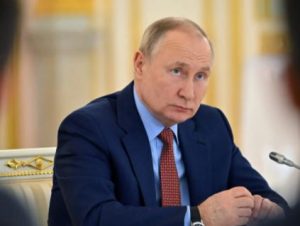Second wave of Russians fleeing Putin’s war
A ‘second wave’ of Russians is fleeing President Vladimir Putin’s regime and his war in Ukraine, reports from Europe say.
A ‘first wave’ of artists, journalists and others who opposed to President Putin’s regime and the war in Ukraine fled the country immediately after the outbreak of the conflict to avoid arrest or political persecution for flouting the Kremlin’s crackdown on dissent.
But as the war rages on, more Russians are deciding to pack up and leave.
There is no concrete data on the number of Russians who have left the country since the start of the war. However, one Russian economist put the total at 200,000 in mid-March.
But the figure is likely to be much higher now as tens of thousands of Russians have relocated to Turkey, Georgia, Armenia, Israel, the Baltic states and elsewhere.
Migration Policy Institute policy analyst Jeanne Batalova said the exodus had gained momentum in recent months.
“The way migration works is that once the flow begins and people start finding out how to do things – get a flat, apply for asylum, find a job or start a business – that prompts more people to leave. It becomes a self-fulfilling cycle,” Ms Batalova said.
She said that some of the people who have left feared persecution for their opposition to the war.
“A lot of people got notices saying that they were traitors -— even from neighbours,” Ms Batalova said.

Vladimir Putin
Just in the tech sector, an estimated 50,000 to 70,000 professionals left in the first month of the war, with a further 70,000 to 100,000 expected to follow, according to a Russian IT trade journal.
These follow more mobile independent Russia tech workers who have already flocked to low-visa countries including Indonesia, Thailand and Turkey.
Also, around 15,000 millionaires are expected to leave Russia this year, according to a recent reports from London-based citizenship-by-investment firm Henley & Partners, with Dubai ranking as the top location for the super-rich.
But, there is a fear among some host countries that an influx of Russian migrants could see them become a target for a future Russian invasion.
Moscow has maintained that part of the justification for its so-called special military operation in Ukraine was the ‘liberation’ of the Donbas, an area of east Ukraine which is home to a significant number of ethnic Russians.
Reports says countries like Georgia, Armenia and the Baltic states – all of which have suffered at the hands of Russian aggression in the past, and have existing concerns over their national security – are likely to be particularly anxious.
They fear Russia will justify a future invasion by espousing a need to protect Russians in those host countries, as they have with ethnic Russians in Ukraine.












